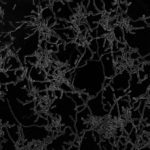Curr Clin Micro Rpt 8, 129–138 (2021).
Candida species are an important cause of both superficial and life-threatening systemic fungal infections. Historically, their study has been centered around their ability to cause human disease. However, this narrow lens limits our understanding of the overall factors that shape their evolution. We argue that from the perspective of evolutionary dynamics, pathogenic traits of Candida species contribute to only one aspect of selection, and their roles as commensal members of the healthy human mycobiome or in the environment may play a larger role in adaptation. We stress that our understanding of these species is lacking due to a limited geographical sampling and minimal study of commensal fungal populations. By looking outside of the box of medical mycology, we can identify what we do and do not know about the factors that shape the genetic and phenotypic diversity of Candida spp. within the variety of environments they inhabit.

